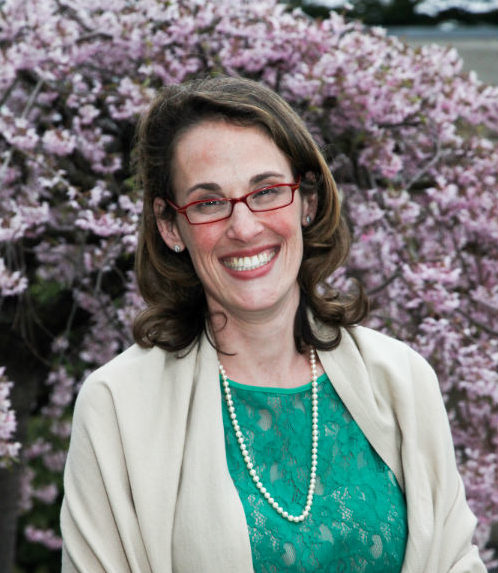As Jacob meets Rachel and Leah, the text shares a rare visual description of both women. We learn that Rachel is beautiful and Leah’s eyes are “weak.” The word describing Leah’s eyes, “rakot,” can also be translated as tender, soft, or gentle. It is difficult to determine if Leah’s eyes are an impairment or a physical description. The rabbis teach that Leah’s eyes were tender because she wept constantly in prayer that she would not have to marry Esau, as it would be logical that the eldest daughter should marry the oldest son (BT Bava Batra 123a). We also learn that Leah is “s’nuah”, unloved by Jacob–or literally, “hated.” However we interpret these descriptors it is clear that Leah is a wounded soul.
Leah’s tears are the only outward manifestation of her emotional anguish. The text does not describe any verbal expression of her distress to Jacob. It is only in her naming of her sons that Leah’s sadness becomes apparent. After bearing Reuven, Leah proclaims “God has seen my suffering” and “God has seen that I am hated.” While we don’t know if Leah says these words quietly in her prayers, mutters them under her breath in her tent, or confronts Jacob publicly, one thing is clear: Jacob is either unaware of or indifferent to Leah’s agony.
What Jacob misses, God sees with abundant clarity. This is a potent message intuited by the rabbis as well. Midrash Tanhuma teaches, “When God sees a person bent over in dejection, He gives him a hand and raises him up, as it is said (Ps. 145:14): ‘The Lord supports all who stumble, and makes all who are bent stand straight.’ When God saw that Leah was unloved, He said: ‘How shall I make her beloved of her husband? Now, I give her children first, so that her husband will love her, and thus I make her stand straight’” (Tanhuma, ed. Buber, Vayeze 10, trans. Jewish Women’s Archive).
It is through Leah’s story that the Torah teaches us: open your eyes to the pain of those quietly suffering. Do not close your ears to the needs and hopes of those who may not be beautiful and have physical and emotional bruises. In a world as troubled as our own, it is no wonder that this aspect of Leah’s narrative carries lasting resonance. The God who sees Leah reminds us that we have the power to truly see those around us. We can take the time to look beneath the surface. We can give the gracious gift of hearing the voice of the disenfranchised, the lost and the suffering.
A few years ago we took a group of students to the Religious Action Center in Washington, DC. The speaker was a homeless man who had overcome great challenges and no longer lived on the street. Our students were wide eyed as he told his story. What remains with me to this day is his proclamation that the worst part of panhandling was not when people declined to give him money. The worst part was when they walked by as if he didn’t exist. Didn’t make eye contact, didn’t say hello. That made me feel less than human, he told our students (who to their credit were then moved to speak to every homeless person in Washington, DC for the rest of the trip).
Whom have we dehumanized by failing to see? Whose tears have gone unnoticed to us? As we work to repair the world, it is easy to champion the “Rachel” causes. Those that are shiny and beautiful and have obvious and immediate results. Harder are the “Leah” issues. Broken places that are complicated, fraught and, yes, sometimes even ugly. This parasha challenges us to look into the eyes of those around us and truly see suffering. To read between the lines and respond to silent pain that often goes unarticulated.
May we learn from the Divine presence who sees and hears Leah’s suffering with clarity and empathy, and go forth with compassion to lift up the fallen and heal the wounds of the most vulnerable as we toil to repair the world.
Rabbi Sarah Mack has served Temple Beth-El in Providence, RI since 2003. She is currently President of the Board of Rabbis of Greater Rhode Island.

